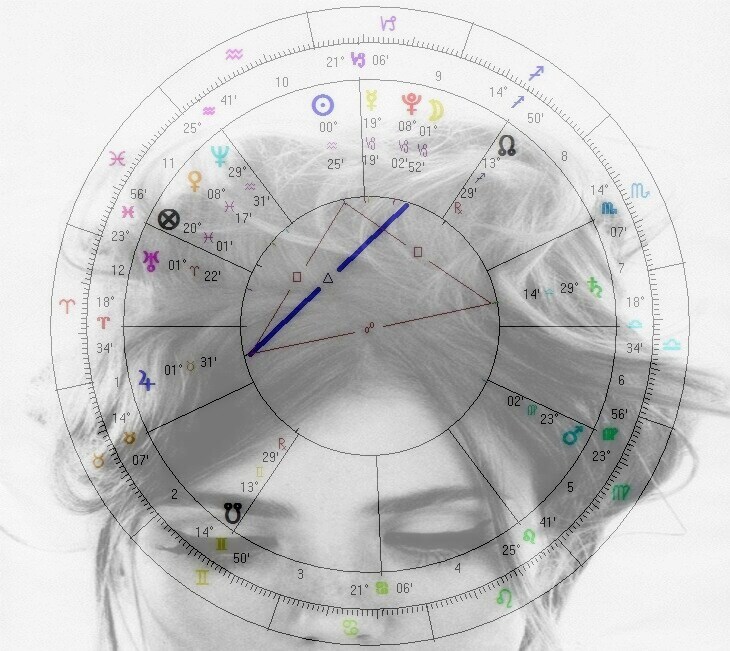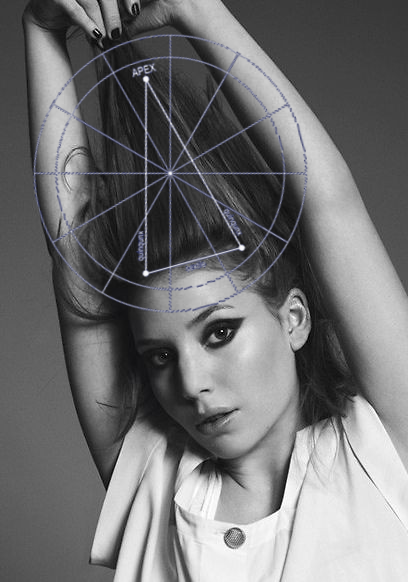
Saturn in the 4th House: Security Is an Inside Job
 With Saturn in the 4th house of your natal, it’s placed right in the heart of your most vulnerable, most personal terrain, in the living room of your inner psyche, overseeing all the unspoken feelings, and the deep-rooted childhood memories. With Saturn here, your feelings of safety and security aren’t something you take for granted; they’re something you’re always working on, always refining, always questioning. The work is deep, and it often feels endless, like you’re constantly looking for cracks in the foundation that could bring the whole structure down. You may find yourself reevaluating your inner world, your emotional landscape, and how you define “home”—not just in terms of bricks and mortar, but in terms of your relationships, your family, your roots, and your very sense of belonging. It’s a watery realm, after all – the domain of feelings that ebb and flow, of unconscious murmurs that bubble up from the depths. But Saturn is not one to let the tides wash over without imposing some order. You’re being asked to look deeply into the emotional pools of your past and see what’s lurking there. Are there wounds that haven’t quite healed?
With Saturn in the 4th house of your natal, it’s placed right in the heart of your most vulnerable, most personal terrain, in the living room of your inner psyche, overseeing all the unspoken feelings, and the deep-rooted childhood memories. With Saturn here, your feelings of safety and security aren’t something you take for granted; they’re something you’re always working on, always refining, always questioning. The work is deep, and it often feels endless, like you’re constantly looking for cracks in the foundation that could bring the whole structure down. You may find yourself reevaluating your inner world, your emotional landscape, and how you define “home”—not just in terms of bricks and mortar, but in terms of your relationships, your family, your roots, and your very sense of belonging. It’s a watery realm, after all – the domain of feelings that ebb and flow, of unconscious murmurs that bubble up from the depths. But Saturn is not one to let the tides wash over without imposing some order. You’re being asked to look deeply into the emotional pools of your past and see what’s lurking there. Are there wounds that haven’t quite healed?
This position can make you acutely aware of what’s beneath the surface – those instinctual reactions, those gut feelings that seem to come from nowhere but are rooted in deep, often unconscious waters. And what does Saturn want? It wants you to work on it, to confront those hidden parts of yourself. It wants you to redefine what ‘home’ truly means for you, beyond the inherited definitions and familial expectations. Saturn here offers a chance to rebuild. You have the opportunity to create a new foundation, one that is more authentically yours, more reflective of your true self, rather than what was simply handed down to you. It’s a chance to reclaim your inner world, to bring consciousness to those unconscious feelings, to transform instinct into intuition.
Saturn invites you to mature emotionally, to take responsibility for your own sense of security. It’s not about what you’ve been given by your past, but about what you choose to build with it. And yes, it might feel heavy, a bit like carrying a brick in your chest, but remember – that brick can be the first stone in the foundation of a new home, one that is truly and uniquely yours. In astrology, the water houses are subterranean realms of the unconscious, where things don’t quite sit neatly on the surface. Planets here pull the strings from behind the curtain, operating in the dimly lit part of our psyche. They’re not upfront and clear, they’re ambiguous, slippery – not something you can just pluck out and examine with the logical mind. They demand a different kind of engagement, one that involves feeling, sensing, diving deep rather than skimming the surface.
Saturn in the 4th is a heavy, leaden planet in this watery house, it has weight, but just when you think you’ve got a grip on it, it slips away, leaving you feeling a little unsettled, a bit confounded by what just happened. This is because water houses, the 4th especially, deal with the parts of us that are often buried beneath conscious awareness – old emotions, inherited patterns, those deep-seated feelings we don’t often let see the light of day. Saturn in the 4th house, it often points to a childhood that felt restricted in some way, like you were carrying a weight from a young age. Maybe you grew up too soon or had to shoulder responsibilities that weren’t quite yours to bear. Maybe there was a parent who wasn’t present, physically or emotionally, or a sense that the nurturing you needed was somehow lacking, incomplete, leaving you with a kind of emotional hunger or a lingering sense of deprivation. And this is where Saturn’s tricky nature comes into play – because while it sits in your watery, feeling realm, its natural instinct is to build walls, to create structures and boundaries. But in a water house, these walls often aren’t built out of brick and mortar; they’re made of defenses, emotional armor that keeps you from feeling the full impact of those early wounds.
You might not even be aware of them half the time – they can manifest in unconscious ways, through habits and reactions you don’t fully understand, driven by that subterranean emotional current that Saturn both illuminates and challenges. So, Saturn here asks for a kind of courageous emotional introspection – a willingness to face the shadows, to feel into those old wounds rather than just papering them over. You’re learning to handle the hardships of family relationships, accepting the responsibilities you were given or took on, and finding a way to integrate those experiences without letting them dominate you unconsciously.
The challenge – and the gift – of Saturn in the 4th is to understand that while there may have been a lack or a restriction in your formative years, this doesn’t have to define you. You have the chance to become your own parent, to provide for yourself the emotional support and security that might have been missing. To consciously create a sense of home within yourself, built on a foundation that is resilient, authentic, and uniquely yours. The work may be hard, but the potential for growth, for deep, soul-level healing, is profound. And there, in the quiet, watery depths, you might just find the most solid ground of all.
Saturn in the 4th house often comes with a deep, bone-level awareness of home – and not always the cosy, rosy kind. It’s more like an awareness that gnaws, a tension that resides in the core of your being. You may feel like you’ve got anchors tethered to places you can’t quite leave, roots in the soil of your past, whether you want them there or not. It’s testing your sense of home, your very understanding of what “safety” and “security” truly mean. You’ve probably carried these concerns from a young age, perhaps finding that you’ve been more preoccupied with stability, with the concept of “home” than most people around you. And not in the fluffy, dream-home kind of way, but in a much more existential sense. You might have felt like you were always trying to hold things together, to keep a structure from falling apart, whether it was your actual home, your family, or just the feeling of “home” within yourself.
As an adult, these concerns could manifest in one of two ways. On one hand, you may become incredibly focused on creating a solid, stable, and enduring home environment, obsessing over the foundations, where nothing and no one can destabilize you. Your idea of home might be something so immovable that even an earthquake wouldn’t shake it.
But this placement can bring about a certain inflexibility or a feeling of being trapped, like there are invisible chains holding you back. You might find yourself in a situation where you feel confined by circumstances – caring for a parent, being bound by financial limitations, or dealing with an illness or disability that keeps you in one place. It’s as if life, or Saturn’s hand, has placed you in a position where leaving your roots, breaking free from your foundations, feels like an impossibility. This could breed a sense of frustration, a claustrophobic feeling that you’re living in a house without doors. Some astrologers are keen to point out that people with Saturn in the 4th can end up living in the same home or hometown for most of their lives, tied to the past or a sense of duty, obligation, or fear. Even if the shackles are unseen, they’re felt deeply, and the frustration can build – feeling like you’re somehow stuck in your own living room.
But let’s not forget – Saturn doesn’t chain you without reason. It’s not a sadist; it’s a teacher. These limitations or barriers in your living situation, however maddening, are there to help you understand something important about your own sense of security and belonging. Maybe it’s to help you realize that real stability doesn’t come from the bricks and mortar, but from within. Perhaps it’s about confronting fears of leaving, or of change, or of facing the unknown. Or maybe it’s about finding freedom not in flight, but in redefining what home means to you, even within the confines you’re given.
If you feel hemmed in, remember that Saturn also offers great rewards for hard work and perseverance. The lesson here might be one of patience, of understanding the roots of your frustrations, and finding a way to make peace with them. The rigidity, the confinement, these are just forms that Saturn takes to nudge you towards deeper self-understanding, to create a sense of home that is unshakable. So, if you feel like you’ve been living under a low ceiling, try to see it not as a limitation, but as a form that is guiding you, challenging you to find that balance between the comfort of the familiar and the courage to break new ground, even if that ground exists only in the realms of your mind and soul. Saturn’s lessons are never easy, but they’re always, always worthwhile.
According to Darby Costello,
Audience: Saturn in the 4th ends up alone. Is there any truth in that? Darby: I have a friend who is seventy-seven, and he has Saturn in the 4th. He is sometimes afraid of being alone in his old age, too. I have pointed out to him that some people might consider that he is already in his old age, but he’s an Aries and he looks shocked when I say that. He is very gregarious, but in the last ten years he has chosen to spend more time in his country house, away from the city, with his young wife. I have another friend who is nearly seventy, and she chose to leave her family and friends and go off to live alone years ago. But people do go to stay – though she lives in a house which is too small for guests, so they have to stay in the village nearby. Some people with Saturn in the 4th seek some measure of aloneness in old age; some do end up “alone” and don’t like it. Let us assume, because it is more useful and practical and we don’t know in the end, that one has a choice as to how this aloneness is cultivated. Learning to appreciate aloneness is good practice anyway.
The 4th house is where our inner world is often drawn by the father’s hand—or at least, the archetype of the father. In psychological astrology, this is where Saturn’s harsh lessons mingles with the very foundation of who you are, leaving its imprint on the most private, tender parts of your psyche. Liz Greene and others have keenly observed that Saturn here can point to a childhood marked by an austere or unsympathetic emotional landscape, where love was either withheld, conditional, or mixed with a sense of duty, responsibility, or burden.
If Saturn’s in the 4th house, the father figure—or whoever played that role in your life—might’ve cast a long shadow. This placement can signify a father who was distant, both physically and emotionally, or perhaps physically present but emotionally unavailable. It’s like he was there, but not quite there, a figure in the background, who provided the roof, the food, the necessities, but failed to nurture the soul. Or maybe he was heavy-handed with discipline, a stickler for rules and order, but missing that vital ingredient of warmth, that ineffable softness that makes a child feel safe, loved, and free to be themselves.
Alternatively, you might’ve had a father who was emotionally available, kind, and loving, but somehow inadequate in other practical ways. Perhaps he was seen as a burden, unable to provide materially, or maybe he struggled with his own inner demons—depression, anxiety, alcoholism or illness—that cast a pall over the home. You could have found yourself in a situation where, instead of being nurtured, you were the one doing the caretaking, trying to hold up the emotional scaffolding around a figure who should have been your source of strength.
In both scenarios, there’s this theme of ambivalence, of mixed messages. The father figure is either overbearing and cold or loving but lacking, creating a sense of instability and insecurity in the formative years. There might be a feeling that love had conditions attached or that the conditions of love were somehow flawed, incomplete, or bound up with issues of duty, guilt, or inadequacy.
The result? You might have grown up with an acute sense of something missing, something essential and foundational. There could be an underlying feeling of emotional coldness or a void, a wound that seems to have no name but is felt profoundly. Saturn in the 4th often brings this sense of lack, this gnawing awareness of an unmet need that echoes through adulthood, affecting how you view security, home, and even your own capacity for nurturing and being nurtured.
But here’s the paradoxical beauty of Saturn – it’s a strict teacher, but it’s also a wise one. The apparent coldness, the deprivation, the feeling of something lacking, all these are clues to a deeper lesson. Saturn doesn’t leave you in this cold, dark place without purpose. This experience forces you to grow in ways you might not have otherwise. It makes you search for emotional self-sufficiency, to dig deeper within yourself to find that sense of home, love, and security.
Those shadowy patterns we carry from childhood tend to slip into our adult lives uninvited. When Saturn sits in the 4th house, it often carries the wounds of our early experiences, especially those involving the father figure or the idea of “home.” If you grew up with a father who was absent, aloof, or perceived as weak, flawed, or even a burden, it can leave a lasting imprint, a kind of psychological residue that subtly shapes your adult relationships. You might find yourself unconsciously drawn to partners who replicate those familiar dynamics, almost as if you’re trying to resolve an old wound by playing out the same scenario, hoping this time it will end differently.
You could seek out authoritative, distant partners, unconsciously attracted to the very qualities that caused you pain, hoping perhaps that if you can finally win their affection or approval, it might somehow heal that old hurt. Or, conversely, you might feel compelled to overcompensate by choosing someone who is emotionally needy or unstable, someone who requires your constant support, thereby repeating the pattern of feeling burdened, just as you might have felt in childhood.
The problem is, these repetitions often feel like fate, as if you’re caught in a cycle that you can’t quite break. You might cling to relationships that aren’t fulfilling, holding onto the hope that if you just work hard enough, love deeply enough, or give enough of yourself, things will finally feel right, that you’ll finally have the home and the connection you always longed for. But the home you’re trying to create with another person might still feel strangely empty, because it’s built on the foundation of unmet childhood needs. Or, you might do the opposite—throw yourself into the idea of being the exact opposite of what you perceived your father to be. If he was weak, you vow to be strong; if he was absent, you become the ever-present caretaker, the one who shoulders all burdens and takes on all responsibilities, even to your own detriment. Yet, this too can lead to frustration, as you find yourself in relationships where you’re always giving, always sacrificing, but never quite receiving what you truly need in return.
Sometimes, this dynamic shows up as an inability to let go of the past—to keep holding onto that home, that family dynamic, or that early pain, hoping against hope that something will change, that things will somehow resolve themselves and feel right. It’s like trying to rewrite the story by reading the same chapter over and over, clinging to a childhood home that never felt quite like home, hoping that by staying in that familiar discomfort, you’ll find comfort at last. But here’s the wisdom hidden in this conundrum: Saturn’s placement here isn’t just about showing you what went wrong; it’s also about showing you how to make it right. It invites you to see these patterns for what they are—not fate, but habits, not destiny, but choices made from an unconscious place of fear or pain.
The challenge—and the opportunity—is to bring these unconscious patterns into the light of awareness, to see where you might be replaying the past rather than creating the future you truly want. If you’ve been carrying the burden alone, whether by choice or circumstance, Saturn asks you to pause and reflect: Is this truly what you want, or is it a role you’ve assumed out of old habits? If you’ve been clinging to relationships that feel strangely familiar but never quite fulfilling, ask yourself whether you’re trying to heal a wound that belongs not to the present, but to the past. The task, then, is not to find the perfect someone who can finally make everything right but to heal the parts of yourself that still long for that feeling of “home.” To understand that no person can fill the void left by a parent who was absent, aloof, or unable to provide the stability you needed.
By doing this inner work, by becoming conscious of these patterns and choosing to change them, you slowly start to break the cycle. You begin to realize that you don’t need to replicate the past to find healing, nor do you need to overcompensate by being the exact opposite of what you experienced. You can create a new dynamic, one that feels genuinely nourishing, balanced, and secure. While the past may shape you, it does not have to define you. Your true home is within, and it’s yours to build, one conscious choice at a time.
You’re becoming your own parent, your own source of security, your own rock in a sea of uncertainty. You may have started with a sense of limitation, but the journey is about discovering the freedom that lies on the other side of those walls, breaking through them with the sheer force of your own inner resilience. If there was coldness, let it teach you the value of warmth, of kindness, of compassion—for yourself, most of all.
In the 4th house, Saturn can manifest as that over-strict, domineering parent, casting a long shadow over your inner landscape. Or it could have been a figure so concerned with control, with the maintenance of order and propriety, that they forgot how to nurture, how to soften, how to simply be present with love. And so, here you are, carrying the residue of that upbringing—a feeling of insecurity that sits at your core. It’s not that you’re weak; far from it. It’s that you never had the chance to develop an inner sense of safety and security. You might walk around with a kind of invisible armor, an emotional shield, built from years of feeling like you missed out on something incredibly important to your self development.
Saturn is like a mirror to all that feels underdeveloped within us, showing us where we lack, where we feel small, where we are most afraid. So here, in the 4th house, there’s this almost crippling sense that a part of your emotional nature is frightened, skittish, like a small child hiding under a table out of fear. You might not let others in easily—how could you? When the very idea of emotional intimacy feels like a dangerous invitation to reopen old wounds, to expose yourself to a vulnerability you learned to fear. Yet, here’s the bittersweet paradox: even as you protect yourself with walls, with defenses, with an air of cool detachment or guardedness, there is this deep, aching, desperate craving for closeness, for real emotional intimacy, for a home—whether physical or emotional where you can finally exhale, let down your guard, and just be. It’s like a hunger that is never quite satisfied because you’re too afraid to reach out and taste what you most desire.
You yearn for a secure inner life, for a place where you feel safe and understood, for connections that are deep and meaningful, for a home that isn’t just bricks and mortar but a place where your soul can rest. And yet, you may find yourself mistrusting these very things, questioning anyone who gets too close, doubting their sincerity, fearing that they will leave you, disappoint you, let you down, or just not understand you in the way you so desperately need. Saturn in the 4th is the dance of both craving and fear, of wanting closeness but fearing it will wound you further. It’s like holding your breath while longing for air. And the lesson here, as always with Saturn, is to learn, slowly and painstakingly, that while your defenses have kept you safe, they may also be keeping you from the warmth you crave. Saturn isn’t just about creating walls; it’s also about learning when and how to take them down.
Saturn’s great gift, hidden beneath its sometimes harsh exterior, is wisdom. It’s the kind of wisdom that comes not from avoiding pain but from understanding it, from feeling it deeply and knowing its contours. It’s the kind of wisdom that allows you to become your own source of safety, your own stability in life. So, here’s the opportunity: to start small. To begin trusting yourself with the notion that you are allowed to feel safe, that you are allowed to have a home—within and without—that is filled with warmth and love. You might not rush into emotional intimacy, but you can slowly allow yourself to open, bit by bit, moment by moment. Let your guard down in tiny increments, test the waters, build a bridge, and see who comes across.
The world isn’t always a friendly place, it’s true. But there are pockets of it, corners of it, where love can be found, where safety can be felt. Saturn in the 4th might make it feel like a long, hard road to find those places, but it’s also a road worth walking. Because when you finally arrive at that sense of security, when you finally feel at home in your own heart, you’ll know that you’ve earned it, that you’ve built it with your own hands, and that no one—not time, not loss, not even Saturn—can take it away from you.
The thing about Saturn here is that it casts a dual spell over the domain of home and family: on the one hand, you may find yourself intensely attached to your home, guarding it almost, wary of anyone who might upset the fragile balance of your inner world. On the other hand, you might distance yourself, emotionally or even physically, from anything that reminds you of the vulnerabilities, the gaps, the absences that shaped your early experience. You could find yourself rejecting it all, keeping a cool detachment, as if the safest place to be is on the outside, looking in, where the possibility of getting hurt again seems more remote, more controllable.
But here’s the thing: it’s not that you’re indifferent. It’s not that you don’t care about this area of your life. Far from it. You care so deeply, so profoundly, that the very thought of letting down your guard feels almost unbearable, like exposing a wound that never quite healed. There’s this sense that something was missing—a basic building block of emotional security that others seem to possess effortlessly, an inner foundation that feels inherently shaky. It’s as if you were deprived of a sense of home—not just the physical home but the emotional one, the place where you felt unconditionally accepted, loved, seen, and supported.
This missing piece—a stable, nurturing presence, an unwavering sense of safety—can leave you feeling like there’s this constant effort to compensate, to shore up the cracks, to make things right. It’s no wonder, then, that Saturn in the 4th can create such extremes—either clinging to home with a fierce determination, trying to make up for what you never had, or distancing yourself from it altogether, protecting yourself from the threat of more pain. And yet, both of these reactions are Saturn’s way of revealing to you the deep, underlying vulnerability that you’re afraid to face, the wound that you carry from childhood, the one that says, “I am not safe; I am not secure; I am not enough.”
You may feel, deep down, that you were somehow unloved, unwanted, or never quite good enough in your own home. And even if you’re not fully conscious of these feelings—perhaps they are there, shaping your responses, your defenses, and your very sense of self. The irony is that while you may strive to hide these insecurities, they often have a way of showing themselves to others, almost like shadows cast on a wall. You might put on a brave face, act cool or detached, but the deeper vulnerabilities, the fears of being inadequate, unloved, or a burden, often seep through in unexpected ways. People around you might sense that something is off, that there’s an underlying tension or sadness, even if you’re doing everything in your power to mask it.
And then there’s that unconscious resentment, that lingering bitterness that might hover in the background of your psyche, particularly towards men or father figures. It’s not always overt, but Saturn’s relationship to the father archetype in the 4th house can leave scars that manifest as mistrust, defensiveness, or an inexplicable irritation with masculine authority or presence. Maybe it’s because you didn’t get what you needed from the father figure in your life, or perhaps the way you experienced that authority felt harsh, unloving, or absent altogether. For men, Saturn here can feel like an inescapable shadow hanging over their sense of masculinity. The father wound becomes a mirror, reflecting their own insecurities and fears about what it means to be a man, a provider, an authority figure. There’s often an internalized pressure to live up to a stern or distant father figure’s expectations—or, conversely, a struggle against becoming exactly like him.
For women, Saturn in the 4th house tends to play out in her relationships with men, particularly those she lives with or forms deep emotional attachments to. Saturn here can create a longing for stability, for a partner who provides a sense of security, structure, and safety—something she might have missed in her early home life. However, if this sense of stability is not something she has cultivated within herself, if it’s not an inner state she carries as her own, then the search for it in a partner can lead to disappointment, a familiar echo of the past.
This can often result in attracting partners who embody the traits of Saturn—a person who is older, more serious, perhaps conservative, practical, or even cold. She may find herself drawn to someone who seems to offer that rock-like foundation, that promise of safety. Yet, if Saturn is heavily challenged in her chart, this stability can often come with strings attached. The partner may turn out to be emotionally distant, unresponsive to her deeper emotional needs, or even replicating the coldness or authority without love she experienced growing up. She may end up feeling like she’s taking on too much responsibility at home, shouldering the burdens, being the one to hold everything together, while her partner stands apart, aloof, or somehow lacking.
The dynamic becomes one where she feels stuck in a cycle of overcompensating for what she perceives to be her own lack, endlessly trying to secure a sense of safety or stability that always seems just out of reach. And this is the crux of Saturn’s lesson in the 4th house: you cannot build an external structure to fill an internal void. If the foundation within is shaky, no partner, no home, no external situation will ever feel secure enough. She might find herself repeating childhood patterns, feeling let down by men who can’t provide the emotional support she longs for or end up carrying the emotional weight of the relationship.
Yet, this is precisely where the opportunity lies. The task is to turn inward, to cultivate that feeling of safety and security within, to build an inner home that is grounded and solid, independent of any external factors. And when this inner work begins, when she starts to reclaim her own authority, to trust in her ability to create stability for herself, something transformational happens. She becomes less dependent on finding Saturn in others because she becomes her own Saturn—strong, wise, capable of providing for herself emotionally. The partners she attracts may shift; they may mirror this new sense of inner security rather than replicating old wounds. The disappointments lessen because she is no longer searching for someone to complete her or to give her what she lacks. She becomes whole in herself, and in that wholeness, finds the very stability she’s always craved.
For men, too, this placement can push them to redefine what it means to be a man, a father, a provider, on their terms, rather than living under the shadow of inherited expectations. It’s a path of reclaiming their authority, but also of finding gentleness, warmth, and emotional depth within themselves, breaking free from rigid ideals of masculinity. Ultimately, Saturn in the 4th house asks both men and women to build their own sense of home, not out of fear or duty, but out of love for themselves, a love that can then radiate outward, inviting others into a space that is truly, deeply secure.
The external often acts as a mirror to the internal—the way we shape our physical world so often reflects the landscapes of our psyche, especially when Saturn is sitting firmly in the 4th house. There’s this powerful, almost primal drive to create something solid, something that says, “Here, this is my proof of safety, my protection against the uncertainties of life.” You may find yourself longing for a home, a property, a piece of land that you can point to as a concrete manifestation of security, something that stands as a bulwark against the emotional wounds of your early life.
You might pour your savings into this endeavor, channel all your energy into creating or acquiring something substantial. And it may bring you a deep sense of satisfaction. A sense of ownership, of having a place in the world that is undeniably yours, can feel like an achievement, a way to stake your claim and say, “I am here. I am safe.” It’s understandable—when you’ve felt unstable or insecure within, there’s an urge to ground yourself in the material world, to build a literal foundation to compensate for the more elusive emotional one.
But while this can provide a form of security, a certain comfort, it may not always satisfy the deeper needs at play. Psychology reminds us that no matter how grand or solid the home, no matter how beautiful the curtains or how strong the walls, if the inner foundation remains shaky, if those core needs for love, acceptance, and belonging aren’t met, then the satisfaction will only be temporary. You could be surrounded by the most luxurious, secure walls, and still feel a sense of loneliness, an unsupported feeling lingering in the background.
The home reflects what’s going on inside. If it’s dark, cluttered, or feels closed in, it may be mirroring a state of inner anxiety, depression, or a feeling of being trapped. If it’s overly controlled, organized to the point of obsession, that could be Saturn showing itself, revealing fears and anxieties that are running the show—a need to impose order on the external world to manage the anxious feeling within. On the flip side, if you have a home that is well taken care of, filled with love, warmth, and personal touches, where you’ve put in the hard work and effort, that too reflects your inner state. It shows growth, emotional maturity, the willingness to nurture both yourself and your surroundings. The act of caring for your home, of building something meaningful in the material realm, can also symbolize the inner work you’ve done, the ways in which you’ve grown and developed emotionally. You might find that as you tend to your external environment with love and care, a similar process is happening inside—a parallel journey of self-discovery, healing, and acceptance. But while a home can be a source of protection, it shouldn’t be a prison. It’s easy to fall into the trap of thinking that the more secure the external, the safer you will feel inside, but Saturn’s lesson is that true security is an inside job. The house, the property, these can be beautiful symbols of your efforts to find stability, but the real work lies in making sure that your inner house—the one built from self-love, self-trust, and emotional resilience—is as strong and nurturing as the one you inhabit physically. Let the outer home be a reflection of the inner, and let both be places where you feel truly, deeply safe.



















 Venus Trine Pluto: Dark Desires
Venus Trine Pluto: Dark Desires
 Mars Conjunct Pluto Synastry
Mars Conjunct Pluto Synastry
 Sun Square Pluto Synastry: You’ve Got That Power Over Me
Sun Square Pluto Synastry: You’ve Got That Power Over Me
 Saturn in the 1st House: From Self-Doubt to Lasting Identity
Saturn in the 1st House: From Self-Doubt to Lasting Identity
 Moon Conjunct Mars Natal Aspect
Moon Conjunct Mars Natal Aspect
 Venus Trine Mars Synastry
Venus Trine Mars Synastry
 Venus-Pluto Synastry: A Love So Powerful That It Might Just Kill Them
Venus-Pluto Synastry: A Love So Powerful That It Might Just Kill Them
 The Scorpio Teenager
The Scorpio Teenager
 Reflections on a Past Venus-Pluto Synastry Aspect
Reflections on a Past Venus-Pluto Synastry Aspect
 Mars-Pluto Synastry: Something Quite Dark and Dangerous
Mars-Pluto Synastry: Something Quite Dark and Dangerous
 Mars in Aquarius: Sex drive
Mars in Aquarius: Sex drive
 The Yod Aspect Pattern: The Mystical Power of the “Finger of Fate”
The Yod Aspect Pattern: The Mystical Power of the “Finger of Fate”
 Uranus Transits: 1st House: Winds of Change:
Uranus Transits: 1st House: Winds of Change:
 Emotional Understanding: Moon Trine Synastry Aspects Interpreted
Emotional Understanding: Moon Trine Synastry Aspects Interpreted
 The Moon: The Goddess of the Night
The Moon: The Goddess of the Night
 Sun Square Pluto Natal Aspect: I Am Titanium
Sun Square Pluto Natal Aspect: I Am Titanium
 Moon Conjunct Pluto Synastry
Moon Conjunct Pluto Synastry
 Venus Conjunct Neptune Synastry: Euphoria and the Aftermath
Venus Conjunct Neptune Synastry: Euphoria and the Aftermath
 Pluto in Libra in the 2nd House: Lessons on Self-Worth and Financial Independence
Pluto in Libra in the 2nd House: Lessons on Self-Worth and Financial Independence
 Sun Conjunct Pluto Synastry: Enlightening or Annihilating
Sun Conjunct Pluto Synastry: Enlightening or Annihilating